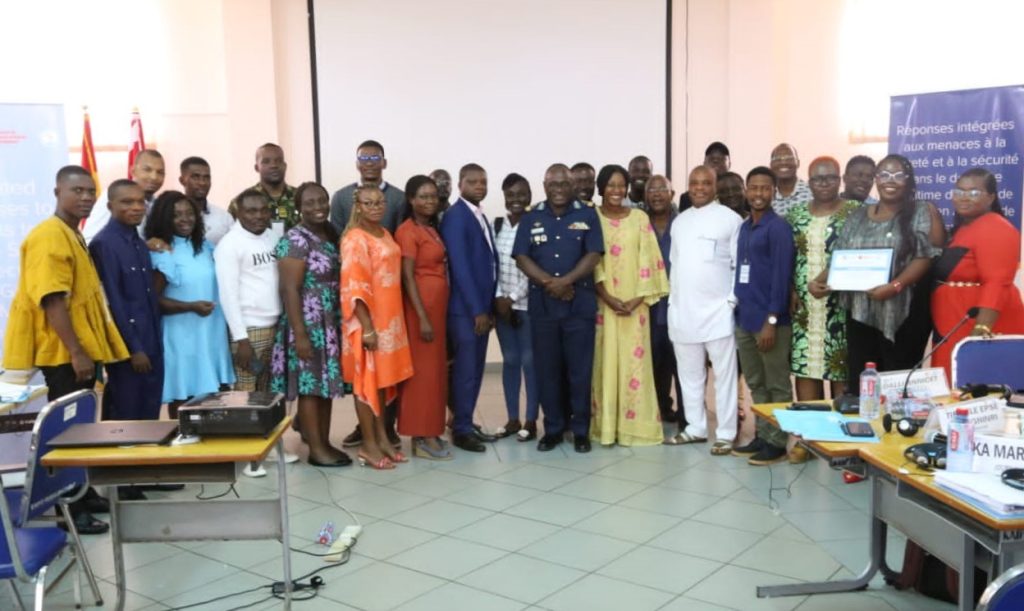By Eric Appah Marfo
Accra, Oct. 07, GNA – Media practitioners have been urged to help find solutions to maritime challenges in the Gulf of Guinea (GoG).
Air Commodore George Arko-Dadzie, Deputy Commandant, Kofi Annan International Peacekeeping Training Centre (KAIPTC), said this at the closing ceremony of a Maritime Security Reporting Course, in Accra.
The comprehensive five-day course enhanced the knowledge base and skillsets of media and maritime security professionals to effectively contribute to the attainment of Maritime Security in the GoG.
It also Introduced participants to the nexus between media reportage and maritime security.
A total of 25 journalists/ media liaisons and maritime security actors drawn from maritime institutions such as the navy, marine police, maritime authority and port administration across West and Central Africa partook in the course.
The topics included Introduction to Maritime Security, Introduction to the Blue Economy, Media and Maritime Security, Legal and Policy Frameworks on Maritime Security, Law and Ethics in Maritime Security Reporting, Gender, Livelihoods and Maritime Security and Information Management in Maritime Security.
Air Cdre Arko-Dadzie said the maritime resource was a shared one, as such, no agency or state could independently survive without collaboration and coordination.
“Forging robust relationships with maritime stakeholders, particularly for those in Journalism, is essential for cultivating a maritime reporting culture founded on precision, mutually beneficial collaborations rooted in trust, professionalism and an enlightened target audience,” he said.
He said in their line of duty, certain decisions and choices may not always reside within their immediate purview, hence the need to rely on connections forged, friendships nurtured and networks established to guide their actions.
Air Cdre Arko-Dadzie said the KAIPTC and the Government of Denmark had launched a project on “Integrated Responses to Threats to Maritime Safety and Security in the Gulf of Guinea Maritime Domain in West and Central Africa” for the next five years.
He said during the period, the two parties would utilise the three tools of research for stabilisation, forging consensus and capacity development for the promotion of professional standards and efficiency, towards safety and security in the GoG.

The Deputy Commandant said the multinational course on, “Maritime Security Reporting” was the second among a series of capacity development component of the project.
He said the KAIPTC, as one of the three Economic Community of West African States (ECOWAS) centres of excellence, remained steadfast in its commitment to provide globally recognised capacity building for all stakeholders involved in African peace and security.
“Our methods encompass training, education, research, and policy dialogues, all aimed at fostering peace and stability throughout the African continent,” he said.
Air Cdre Arko-Dadzie congratulated and expressed appreciation to the participants for availing themselves to be trained.
He encouraged them to disseminate their newfound knowledge among their colleagues, influence policy, and challenge prevailing stereotypes.
Miss Brenda Awulley, Assistant Public Relations Officer, Ghana Maritime Authority, during a panel discussion, said collaboration between the maritime space and media kept security issues top-of-mind amongst the public and fostered transparency, public understanding and ensured that accurate and reliable information reached the public.
She said it was, therefore, essential for both parties to maintain ethical standards and respect operational sensitivities to strike the right balance between information sharing and security.
GNA